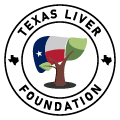Sugar and Liver Health

05 Feb 2024 |
Hey there, sugar! No, we’re not just being sweet, we’re here to talk about the real sweet stuff, and the impact it can have on your liver health. We’ve all heard that too much sugar isn’t great for us, but do you know why? Let’s dive into the nitty-gritty, but don’t worry, we’ll keep it light and digestible—just like your favorite healthy dessert!
The Sugar-Liver Connection
When we talk about sugar, we’re often talking about glucose and fructose, the most common sugars in our diets. The difference between these two is all about how our bodies break them down. While almost every cell in our body can use glucose for energy, fructose is broken down by the liver. And what happens when there’s too much fructose? Well, let’s just say it’s not so sweet for our livers.
From Fruit to Fructose
Fructose, also known as fruit sugar, was once a minor part of our diets, mainly coming from fruits and vegetables. But today, we’re consuming much more fructose, mostly from refined sugars in foods like breakfast cereals, pastries, sodas, and other sweet treats. This influx of fructose can lead to some not-so-tasty consequences for our livers.
“Give the liver enough fructose, and tiny fat droplets begin to accumulate in liver cells. This buildup is called nonalcoholic fatty liver disease.”
September 1, 2011, “Abundance of fructose not good for the liver, heart,” Harvard Health Publishing
Nonalcoholic Fatty Liver Disease
Nonalcoholic fatty liver disease (NAFLD), also known as metabolic dysfunction-associated steatotic liver disease (MASLD), is a condition that’s become more common in recent decades, affecting up to 30% of adults in developed countries. It’s even more prevalent among those who are obese or have diabetes. In the early stages, NAFLD is reversible, but if left unchecked, it can lead to inflammation and more severe liver damage.
But Wait, There’s More!
As if potential liver damage wasn’t enough, the breakdown of fructose in the liver can lead to a host of other issues, including:
- Elevated triglycerides
- Increased harmful LDL (the “bad” cholesterol)
- Promotion of fat buildup around organs
- Increased blood pressure
- Increased insulin resistance, a precursor to diabetes
- Increased production of free radicals, which can damage DNA and cells
Reducing Your Sugar Intake
Now, we’re not saying you need to give up all sugar—after all, fruit is still good for you and a minor source of fructose. The key is to limit added sugars, particularly from sugar-sweetened drinks, pastries, desserts, breakfast cereals, and more. Not only can this help you maintain a healthy weight, but it can also protect your liver and your arteries.
Join Our 12 Months To A Healthier Liver Challenge!
Ready to take a step towards better liver health? We challenge you to track your average sugar consumption and set a goal to reduce your intake. Need some guidance? Learn about our Facebook challenge for tips and support on improving your liver health. Remember, every small change can make a big difference!
